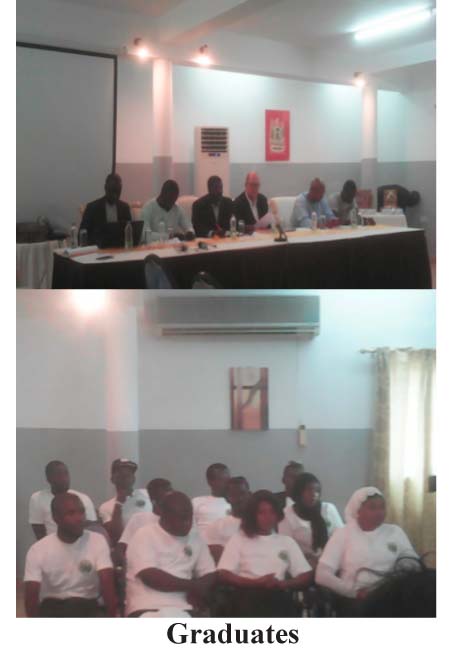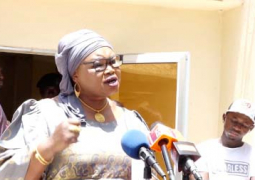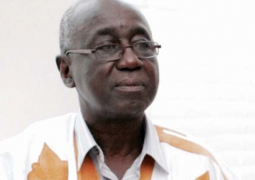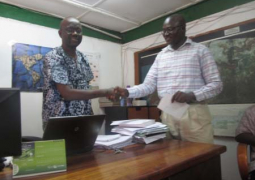
A
set of 24 agriculture journalists from commercial and community radio stations
recently completed an 18-month agric-journalism training course to empower
agriculture through journalism.
The
initiative, funded by the Danish Civil Society Organization (CISU) and Danish
Food and Agriculture Journalist in collaboration with the Network of
Agriculture Communicators (NAC), was held at the Mansea Hotel.
The
Minister of Information, Demba A. Jawo, speaking at the ceremony, said the idea
of agricultural journalism training was innovative and it was amazing how
journalists are specialising.
Radio talks to the people directly in their
own languages, he said, adding that it is interactive as listeners could call
to make suggestions or ask questions.
He
said the training was very important, especially to the profession of
journalism.
“We
are in the new Gambia and such training will make media houses to survive in
the future,” he said.
Amadou
Jallow, in his opening remarks, said the training was initiated to help farmers
on what they do.
He
said the graduates were well-trained to serve their nation as agriculture is
the backbone of the country’s development.
He
added that NAC was proud to train the first set of agriculture journalists as
they would contribute in moving the agriculture sector forward.
He
said those radio journalists were chosen because most of the country’s farmers
are not educated to read and write, hence they believe that the graduating
participants were well-equipped to represent the voice of the farmers in their
various communities.
The
noble gesture will give the farmers the opportunity to understand and operate
to their best.
The lead trainer, Modou S. Joof, said the
project was meant to build the journalism skills of the participants to
effectively report on agricultural issues that will benefit farmers and
policymakers.
He
said journalism is the best profession to champion the sharing of timely,
accurate and useful information to these groups.
The
training started in November 2015 with 26 trainees from 10 community and 3
commercial radio stations and the training was conducted once every month in
all clusters.
They
were trained on topics including news gathering, headline writing for print,
producing news briefs, wrap news, radio magazine, ethics and media laws and
were provided with theory, practical experience and assignments.
Finn
Asnes, representing DFAJ, said his organization, with the help of CISU, funded
the project to empower the farmers through training journalists.
He commended the participants for devoting
their time to help in the development of their country through agricultural
enlightenment.
The
graduation was a new development in the agricultural sector, he added, saying
Demark and The Gambia would continue to work for the welfare of journalists.




